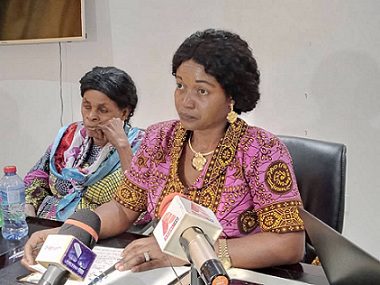The Labour Act, 2003 (Act 651) consolidates all laws relating to labour, employers, trade unions, and industrial relations in Ghana.
This Act, however, does not benefit all workers and unions.TUC’s Union of Informal Workers Association is one such union.
The Union which was established in 2013 by the Trades Union Congress (Ghana), with the support from Friedrich Ebert Stiftung (FES, Ghana Office) and the Danish Trade Union Solidarity Centre (LOFTF), to bring together all the associate members of the TUC that are operating in the informal economy with the aim of promoting and protecting the interests of all workers in the informal economy believes little is done by the government and stakeholders to address their needs.
But are they hoping that with their inclusion in Labour Act, their businesses would be protected.
At an emergency National Executive Council General meeting on June 6, 2023, held in Accra, the General Secretary of the Union of Informal Workers’ Associations (UNIWA) Mrs. Deborah Freeman Danqua called on the government to as a matter of urgency include the Union in the review process.
Mrs. Deborah Danqua said the informal economy workers constituted about 90% of Ghana’s working force and therefore their inputs must be recognized by stakeholders.
She then appealed to the authorities involved in the review process to expedite the process since the delay in the review process is giving them false hope.
In a related development, some executive members of the union want the convention numbered 189 of the Domestic Workers Regulations 2020 (L.I 2408) that seeks to provide protection and decent work for domestic workers to be passed and implemented.
Delay in ensuring that the conversation is passed and implemented is a failure on the part of the government to protect domestic workers, they argued.
They believed the 189 convention in the Regulation if passed and implemented would see to the protection of domestic workers, many of who were treated badly by their employers.
They expressed worry about the little publicity on the passage of the Regulations and called on the appropriate authorities to sensitize the public on the relevance of the Regulation and how domestic workers and their employers could apply and comply with it.
By Margaret Esaah Boakye


















